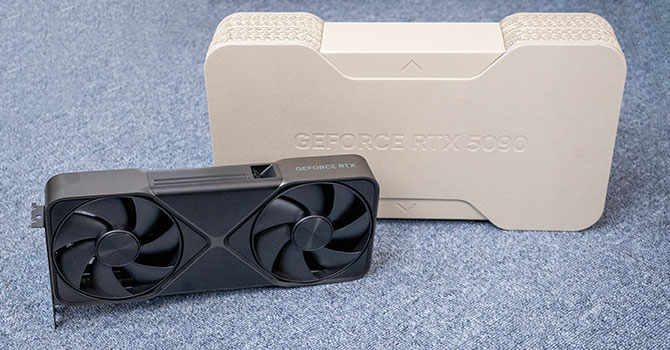Kaamos_Llama
Moderator

Nvidia GeForce RTX 5090 FE review
A new graphics card built for silicon austerity and a new era of AI rendering.
But in this timeline, the RTX 5090 is an ultra enthusiast graphics card that is begging us to be more realistic. Which, I will freely admit, sounds kinda odd from what has always been an OTT card. But, in the real world, a GB202 GPU running on a more advanced, smaller process node, with far more CUDA cores, would have cost a whole lot more than the $1,999 the green team is asking for this new card. And would still maybe only get you another 10–20% higher performance for the money—I mean, how much different is TSMC's 3 nm node to its 4 nm ones?

Nvidia GeForce RTX 5090 Founders Edition review: Blackwell commences its reign with a few stumbles
More performance, power, and features — plus some driver teething pains.
The RTX 5090 is a lot like this initial review: It's a bit of a messy situation — a work in progress. We're not done testing, and Nvidia isn't done either. Certain games and apps need updates and/or driver work. Nvidia usually does pretty good with drivers, but new architectures can change requirements in somewhat unexpected ways, and Nvidia needs to continue to work on tuning and optimizing its drivers. We're also sure Nvidia doesn't need us to tell it that.
Gaming performance is very much about running 4K and maxed out settings. If you only have a 1440p or 1080p display, you're better off saving your pennies and upgrading you monitor — and probably the rest of your PC as well! — before spending a couple grand on a gaming GPU.
Unless you're also interested in non-gaming applications and tasks, particularly AI workloads. If that's what you're after, the RTX 5090 could be a perfect fit.

NVIDIA GeForce RTX 5090 Founders Edition Review - The New Flagship
NVIDIA's GeForce RTX 5090 is the fastest graphics card ever released. It comes with a whopping 32 GB VRAM, and support for multi-frame generation, which achieves hundreds of FPS easily. We also managed to disassemble the card, and our review includes performance testing without upscaling or...
At 4K resolution, with pure rasterization, without ray tracing or DLSS, we measured a 35% performance uplift over the RTX 4090. While this is certainly impressive, it is considerably less than what we got from RTX 3090 Ti to RTX 4090 (+51%). NVIDIA still achieves their "twice the performance every second generation" rule: the RTX 5090 is twice as fast as the RTX 3090 Ti. There really isn't much on the market that RTX 5090 can be compared to, it's 75% faster than AMD's flagship the RX 7900 XTX. AMD has confirmed that they are not going for high-end with RDNA 4, and it's expected that the RX 9070 Series will end up somewhere between RX 7900 XT and RX 7900 GRE. This means that RTX 5090 is at least twice as fast as AMD's fastest next-generation card. Compared to the second-fastest Ada card, the RTX 4080 Super, the performance increase is 72%—wow!
My own initial thoughts. On the same process node as the 4090, we have 33% more cores, providing 35% more performance on average in non RT games at 4K and 32% better RT performance without any frame gen. At the expense of 42% more power than the 4090, anyone calling this efficient is 'avin a laff. That heatsink is a ******* marvel, very cool, pun intended.
Frame gen better be really good then. The lesser cards will be very disappointing compared to 40 series without it going by this.


